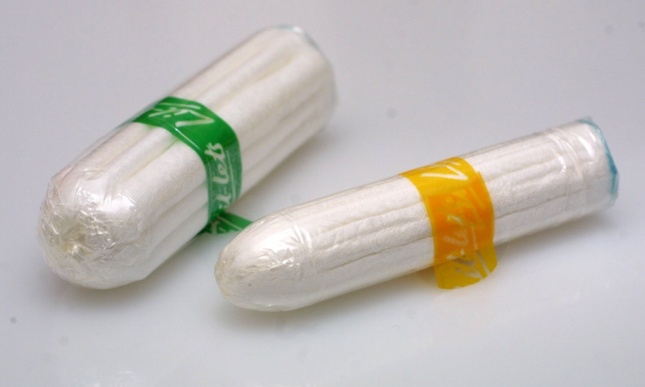
The treasurer, Joe Hockey, says the GST on tampons and pads should be removed. Photograph: Nils Jorgensen/Rex
Daniel Hurst and Shalailah Medhora
The federal treasurer, Joe Hockey, promised to have discussions with his state and territory counterparts about removing the 10% GST from such products on Monday night’s Q&A program on the ABC.
The shadow treasurer Chris Bowen has signalled Labor’s support for the change, but the prime minister dismissed it.
“It’s certainly not something that this government has a plan to do,” Abbott said during a press conference.
Opposition leader Bill Shorten asked the prime minister during question time in parliament on Tuesday if the government would support the removal of the GST on pads and tampons in exchange for Labor’s support for the so-called Netflix tax which would charge GST on internet downloads.
Abbott rejected the compromise, which Labor said would swap a $25m windfall from the GST on sanitary products with a $350m gain from the Netflix tax.
“The GST is a tax which is imposed for the states, it is spent by the states, and Madam Speaker, changes to the GST are absolutely a matter for the states and territories and if all the states and territories can agree obviously we are happy to hear from them,” Abbott replied.
Hockey pledged to re-examine the issue after a question from a university student, Subeta Vimalajarah, whose petition “stop taxing my period” has more than 92,000 signatures.
Items such as condoms and sunscreen are exempt from the tax on the premise they are health products.
The Howard government, which introduced the GST in 2000, included the tax on tampons but excluded it from continence pads.
Hockey said he would discuss the issue with the states and territories at the next meeting of treasurers in July.
When asked by the Q&A host, Tony Jones, on Monday whether the GST should be taken off the items, Hockey replied: “It probably should, yes. The answer is yes.
“What happened was when it [the GST] was negotiated through the Senate by the Howard government, the Democrats had a list of things they wanted excluded and they didn’t have sanitary products on it, so it didn’t happen.”
Abbott said “things would have been done differently” if the negotiations on GST exclusions were to take place now.
A Labor MP also raised the topic during the opposition’s caucus meeting on Tuesday. Bowen told the meeting: “We are agreeing with Joe Hockey and are supportive if the government has a way of fixing this with the state treasurers.”
The GST Act that passed the parliament in 1999 specified exemptions for continence products “including disposable/reusable continence pads, pants and nappies required for continence use (excluding nappies for babies, sanitary pads or tampons)”.
The classification prompted outrage from women’s groups and consumer advocates, who unsuccessfully petitioned the Howard government and successive Labor governments to remove the tax on tampons.
John Howard resisted calls from within his own government for the exception to be extended.
“Now, you can always mount an argument not to tax an individual item. I understand that,” Howard told the ABC in 2000.
“And taken in isolation, that argument can be compelling. But you can’t take things in isolation. You’ve got to look at it, every little part as a section of the whole. And that is what I’m doing in relation to this. And if you take the GST off, say, tampons, within a few days, I promise you, there will be a group of people mounting quite a respective argument in isolation to take it off children’s clothing. Everybody needs clothing.”
Michael Wooldridge, a health minister in the Howard government, drew fire from members of his own party for his insensitive handling of the issue.
“Well, condoms prevent illness,” he said in 2000 when asked why the items were exempt from the GST. “I wasn’t aware that menstruation was an illness.”
